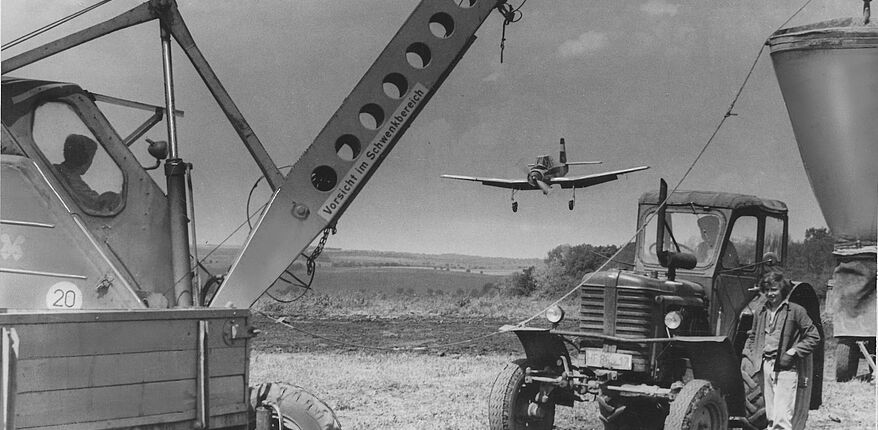The limit was set at 100 hectares. Among other things, farms over this size were expropriated. In addition to the arable land, this also included the associated houses (residential buildings or barns) along with so-called "movable cultural assets", consisting of furniture, pictures, books or agricultural equipment. The expropriated fields were allocated to new farmers on request, who had often lost everything as refugees and cultivated them from then on. Under the difficult conditions in post-war Germany and due to a lack of technology or even draught animals, most of the new farmers failed very quickly, so that after the first individual mergers and initiatives, collectivisation began. The small farms joined together to form agricultural production cooperatives (LPG). This was decided by the SED from 1952 and the mergers were not always voluntary.
Despite the failure of the land reform in the true sense of the word, this event was regularly celebrated in the GDR. The Börde Museum's collection includes photos taken in Wanzleben during a week of celebrations to mark 30 years of land reform and 450 years of the Peasants' War.
"We are taking the 80th anniversary as an opportunity to talk to contemporary witnesses. It is important to us to get into dialogue with many people. These can be people who had their own experiences with agriculture in the GDR or those who know about it from their parents' and grandparents' stories." Museum director Dr Nadine Panteleon explains the project. "Not all historical events have surviving objects, so it is all the more important that we fill them with narrative content. For example, we have hardly any artefacts in the museum relating to agricultural aircraft, which also definitely deserves our attention."
Contemporary witnesses interested in participating in the project should contact the Börde Museum to arrange an appointment and for further information. By telephone on 039409/522 or by e-mail boerde-museum(at)landkreis-boerde.de
